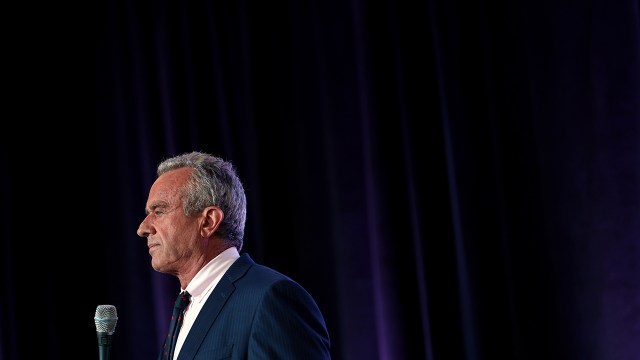
Robert F. Kennedy Jr. announced he would suspend his presidential campaign on Friday – adding yet another shakeup to the 2024 contest.
Pew Research Center conducted this analysis to better understand voters who said they planned to support Robert F. Kennedy Jr. in the 2024 presidential election. For this analysis, we surveyed 9,201 adults – including 7,569 registered voters – from Aug. 5 to 11, 2024.
Everyone who took part in this survey is a member of the Center’s American Trends Panel (ATP), a group of people recruited through national, random sampling of residential addresses who have agreed to take surveys regularly. This kind of recruitment gives nearly all U.S. adults a chance of selection. Surveys were conducted either online or by telephone with a live interviewer. The survey is weighted to be representative of the U.S. adult population by gender, race, ethnicity, partisan affiliation, education and other factors. Read more about the ATP’s methodology.
Here are the questions used for this analysis, the topline and the survey methodology.
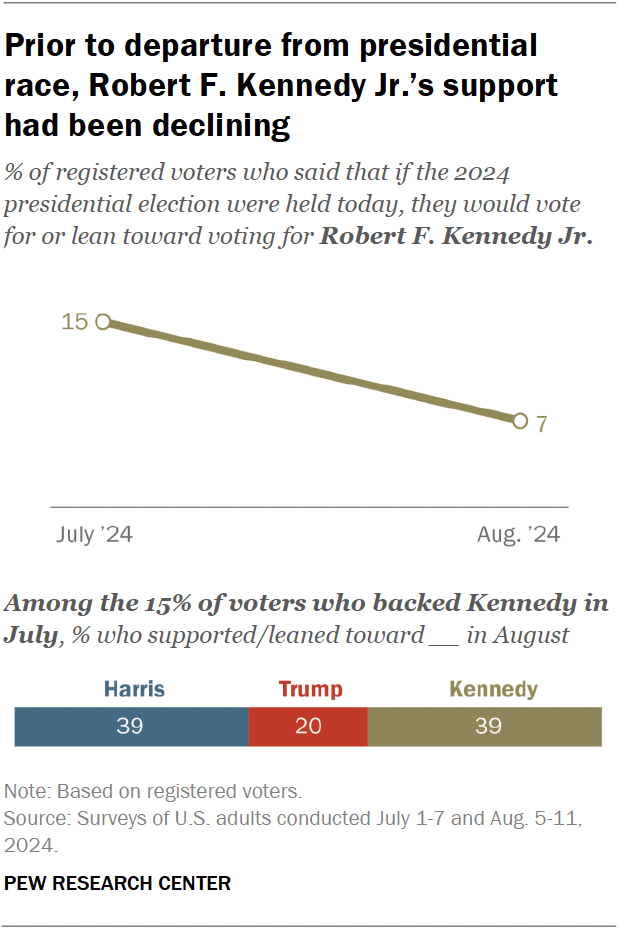
Though the third-party candidate was capturing about 15% of registered voters in early July, he lost significant ground after that. In early August, just 7% of voters said they leaned toward or preferred Kennedy for president. This data comes from Pew Research Center surveys conducted in July and August.
As RFK Jr. exits the race, here are some findings about his supporters:
What Kennedy voters did after Biden withdrew from race
Many of Kennedy’s July supporters decided to back a different candidate after Joe Biden left the race. These voters picked Kamala Harris over Donald Trump by two-to-one.
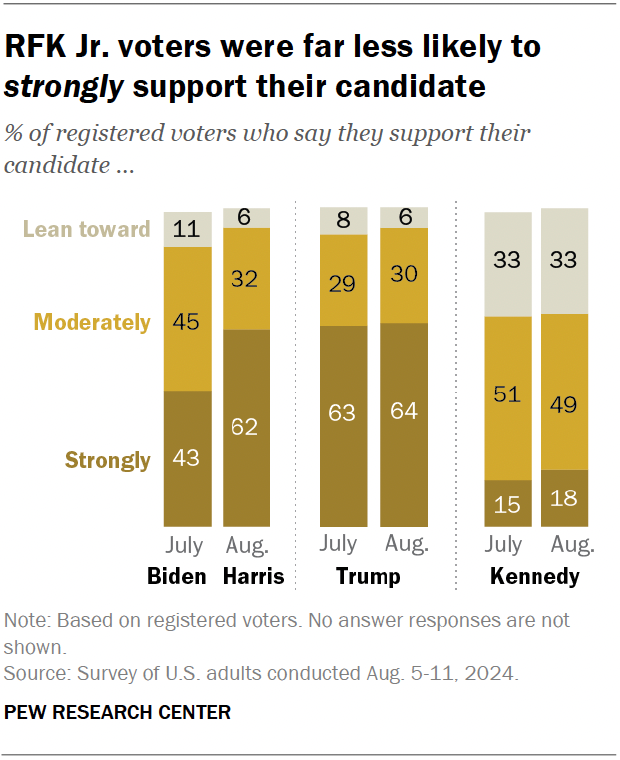
Among voters who said they backed Kennedy in July, a majority (61%) supported a different candidate in August. Roughly four-in-ten (39%) continued to back RFK Jr. Far more of those who changed their preference decided to support Harris (39%) than Trump (20%).
Kennedy’s voters were lukewarm in their support
In August, just 18% of Kennedy’s supporters said they backed him strongly. This compared with nearly two-thirds of Trump (64%) and Harris (62%) supporters.
Which voters were more likely to support RFK Jr.
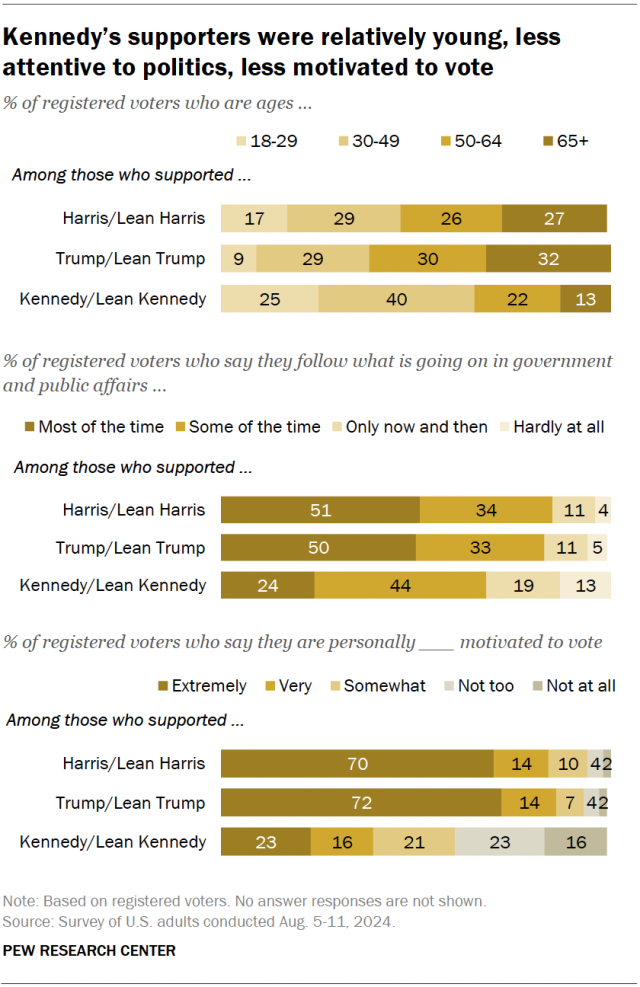
Kennedy’s remaining supporters in August were far younger than Harris’ or Trump’s. About two-thirds of Kennedy’s supporters were under 50, compared with 46% of Harris’ and 38% of Trump’s.
While roughly half of Harris and Trump supporters follow what is going on in government and public affairs most of the time, only about a quarter (24%) of Kennedy supporters do.
Kennedy’s supporters also were far less likely to say they were highly motivated to vote in the presidential election. In August, the following shares of each candidate’s supporters said they were extremely motivated to vote:
- Harris: 70%
- Trump: 72%
- Kennedy: 23%
Most Kennedy supporters did not identify as partisans – and a majority held unfavorable views of both Harris and Trump
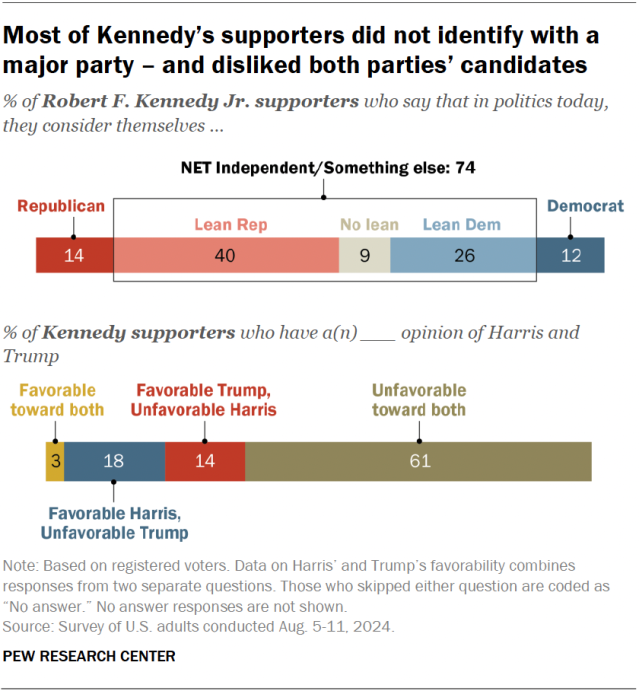
Most of Kennedy’s remaining supporters did not call themselves partisans. Just 14% consider themselves Republicans while 12% consider themselves Democrats.
The vast majority of his supporters (74%) say they are independent or something else. A larger share lean toward the Republican Party than the Democratic Party (40% vs. 26%).
In August, Kennedy supporters were sour on both Harris and Trump – 61% said they had an unfavorable view of both candidates.
Note: Here are the questions used for this analysis, the topline and the survey methodology.
